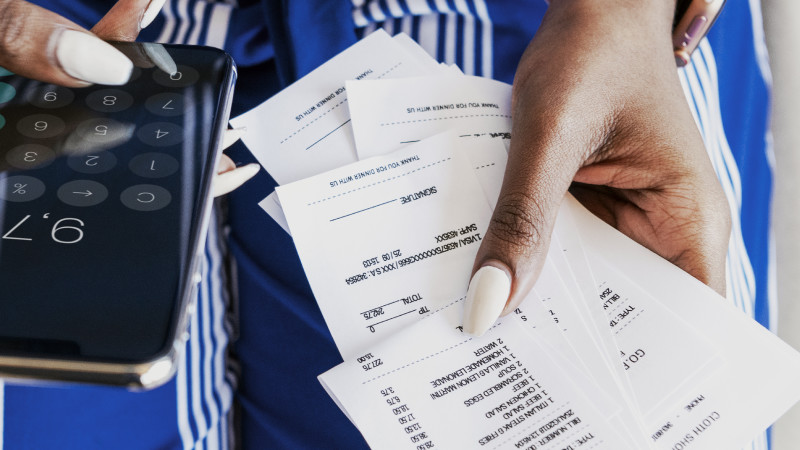The Evolution of Bookkeeping Has Come A Long Way
The first ‘record’ of accounting dates back as early as the Mesopotamian civilization, where simple documentation was maintained in the books. Around the 15th century, an Italian monk named Luca Pacioli, considered the father of accounting, developed the double-entry bookkeeping system, which changed the accounting landscape completely. The evolution of bookkeeping has a come a long way from the 15th century when accounting ledgers were completed by hand, compared to today’s digitized process.
Every organization that is accountable for the stewardship of resources must depend on qualified professionals to manage and provide financial data, ensure tax compliance, and assist with day-to-day business decisions. These professionals are experts at analyzing day-to-day transactions and recording them properly into manual and computerized accounting packages.
Bookkeeping in a Digital World is the perfect course for professionals in the bookkeeping, tax and financial services, who wish to train their administrative staff to prepare company books, or for those with the professional role of preparing books for others. Bookkeepers who know how to run software, but have no education in theoretical accounting, also benefit from taking this course, which is the first in the Accounting Services Specialist designation program. This course will also help those that are considering starting their own business, by providing information on the types of organizations and what will be expected of them from the regulatory bodies.
Bookkeeping in a Digital World is just one of six courses needed to earn the DMATM Accounting Services Specialist Designation.
Why is this timely and important?
-Learn how to set up manual/computerized bookkeeping systems in an efficient manner
-Truly understand the basics of tax structures and payroll
-Stay current and compliant with CRA rules
-Bookkeepers will know their exact responsibilities
What You'll Learn
You will gain a sound working knowledge of how to set up a CRA-compliant bookkeeping system for a small business; how to analyze transactions and report these within the accounting cycle in a double-entry bookkeeping system using accounting software, and then present financial statements to the accountant for tax preparation and review. You'll also gain an understanding and appreciation for the professional and ethical requirements of a bookkeeper.
As well, you'll acquire the ability to analyze and report transactions that require knowledge of GAAP; an expert understanding of the accounting equation, T accounts, and debits and credits. You'll also have a basic understanding of the tax structure imposed on businesses and achieve a sound ethical compass, expert organizational skill, the ability to seek out and correct accounting errors and inconsistencies, expert data entry skills, and a sound understanding of financial statements.
Having successfully completed financial accounting courses in my Business Administration program, I did not feel that the Basic Bookkeeping course would cover any new topics I did not already know, but I was wrong. This is a great refresher course or foundation course for anyone wanting to enter into this field. The online learning environment allows you to work at your own pace, the website is easy to navigate, and the online support is quick to respond and effective. I can’t wait to dive into the second of my six courses required for my bookkeeping designation. Thank you for your call today, and support, it was very nice to be acknowledged for my accomplishments. Not only is the Knowledge Bureau a great learning institute, but also a top-notch service provider, the staff go out of their way.
—Dawn S., BC
Enrol Today
What’s Included:
- Personal course selection consultation
- Virtual campus orientation
- Lesson and study plans
- Personal instructor email support
- Comprehensive Knowledge Journal
- EverGreen Online Research Library
- Knowledge Bureau calculators
- Testing and certification
- CE/CPD accreditation
Tools and Software:
- Sage 50
- QuickBooks Online
Scope of Content:
Chapter 1 | The Roles and Responsibilities of the Bookkeeper
Chapter 2 | Types of Organizations, Fiscal Periods and Accounting Cycles
Chapter 3 | Types of Accounts and the Basic Accounting Equation
Chapter 4 | Chart of Accounts, General Ledger, Trial Balance & Special Accounts
Chapter 5 | Journals, Registers and Ledgers - I
Chapter 6 | Journals, Registers and Ledgers - II
Chapter 7 | Fundamental Cash-basis Accounting
Chapter 8 | Fundamentals of Accrual Accounting
Chapter 9 | Period-end Procedures
Chapter 10 | Documentation, File Maintenance & Due Dates
Chapter 11 | Payroll—an Introduction
Study Online, Anytime, Anywhere. You can start anytime and study at your own convenience and in your own home or office. Everything is included - even access to personal instructor support by email. You have three months to complete each 30-hour course. Extensions are available for $149. per additional month.
Tuition Fees Qualify for Tax Relief. Eligible students may also reduce tuition fees by claiming a tuition fee amount and a Canada Training Credit on their tax return. Check out the Knowledge Bureau Tuition Guide which includes information on study terms and other school policies.
We’re At Your Side. Remote learning doesn't mean you're doing it on your own! You will always have the support of your instructors and education team through video calls, discussion boards and more. Remember, you can study at your own pace and schedule that works for you. Our Educational Consultants are here to assist with your complete program onboarding including course selection and a virtual campus orientation. If you have questions during your studies, the personal instructor is just an email away.
Your study plan is flexible and self-paced.
©Knowledge Bureau, Inc. All rights Reserved